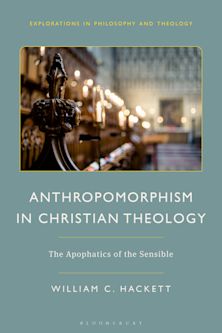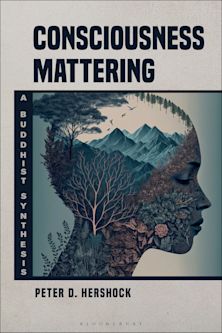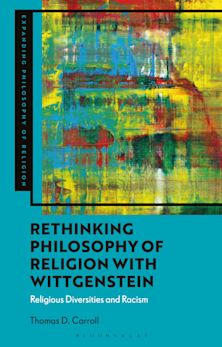- Home
- ACADEMIC
- Philosophy
- Philosophy of Religion
- Levinas Faces Biblical Figures
Levinas Faces Biblical Figures
Yael Lin (Anthology Editor) , Ephraim Meir (Contributor) , Edna Langenthal (Contributor) , Gary D. Mole (Contributor) , Elisabeth Goldwyn (Contributor) , Catherine Chalier (Contributor) , Eli Schonfeld (Contributor) , Michal Ben-Naftali (Contributor) , Richard A. Cohen (Contributor) , Hanoch Ben-Pazi (Contributor) , Tamar Abramov (Contributor)
Levinas Faces Biblical Figures
Yael Lin (Anthology Editor) , Ephraim Meir (Contributor) , Edna Langenthal (Contributor) , Gary D. Mole (Contributor) , Elisabeth Goldwyn (Contributor) , Catherine Chalier (Contributor) , Eli Schonfeld (Contributor) , Michal Ben-Naftali (Contributor) , Richard A. Cohen (Contributor) , Hanoch Ben-Pazi (Contributor) , Tamar Abramov (Contributor)
You must sign in to add this item to your wishlist. Please sign in or create an account
Description
This collection of essays is an attempt to capture the drama of the encounter, of the 'facing' of Levinas and the biblical text. It seeks to link Jewish experience and Levinasian themes such as responsibility, substitution, hospitality, suffering and forgiveness, and at the same time make the biblical text accessible in a new way.
The book offers new insights on the opening up of Levinas's thought and biblical stories to one another; it considers the ways in which Levinas can open up the biblical text to requestioning, and how the biblical text can inform our reading of Levinas. Setting up in dialogue the heteronomic texts – the narrative texts of the bible and Levinas's philosophical texts – allows an enforced and renewed understanding of both. The examination of these issues is pursued from diverse perspectives and disciplines, probing the role biblical figures play in Levinas's thought and the manner by which to approach them. Do the biblical allusions serve in Levinas's thought merely as a rhetorical and literary device, as illustrations of his ideas, or perhaps they have a deeper philosophical meaning, which contributes to his project in general? Do the references to biblical figures work in Levinas's philosophy in a way that other literary figures are incapable of, and how do these references comply with his conflicted attitude towards literature?
Table of Contents
The Bible, Ethics and Poetics
Yael Lin
1) Subjectivity, Hospitality and Exile
The Meaning of the Abrahamic Adventure in Levinas's Thought
Ephraim Meir
Welcoming the Other: Hospitality, Subjectivity and Otherness in the Thought of Emmanuel Levinas and the Biblical Story, the Hospitality of Abraham
Edna Langenthal
2) Suffering, Justice, and Forgiveness
Cruel Justice, Responsibility, and Forgiveness: On Levinas's Reading of the Gibeonites
Gary D. Mole
The Power of Goodness – Rizpah Bat Aya in the Interpretation of Levinas
Elisabeth Goldwyn
3) Choice and Election
Ruth : The Meaning of a Conversion
Catherine Chalier
Jonah: Hero of the Impossible Escape: The Biblical Interruption of Philosophy in Levinas
Eli Schonfeld
4) The Face, Death, and Responsibility
Abel's Look – Levinas Reads Cain
Michal Ben-Naftali
The Mystery of the Red Heifer – Solved, to Nobody’s Satisfaction
Richard A. Cohen
5) Judaism, Messianism, and Zionism
Joseph: The Voice from the Coffin
Hanoch Ben-Pazi
Ladders to Heaven: Caleb, Levinas and the Challenge of the Explorers
Tamar Abramov
Product details
| Published | 20 Mar 2014 |
|---|---|
| Format | Ebook (Epub & Mobi) |
| Edition | 1st |
| Extent | 236 |
| ISBN | 9780739182833 |
| Imprint | Lexington Books |
| Publisher | Bloomsbury Publishing |
About the contributors
Reviews
-
In [the book] the reader is presented with a rich variety of analyses of Levinas’s readings of biblical figures, events, and notions. . . .Of particular note is Eli Schonfeld’s piece on Jonah, which analyzes not only a specific biblical moment, but also attempts to articulate the hermeneutics at play in Levinas’s biblical references in general in order to clarify their role in his larger philosophical project. Alongside addressing a somewhat neglected topic in the study of Levinas, the uniqueness of this volume resides in the essays that use Levinas’s philosophy as a background and inspiration for putting forth intriguing and original readings of the Bible, thereby exhibiting the exegetical productivity a Levinasian prism could offer.This is an insightful contribution to the ever-growing scholarship on Levinas and Judaism. Moreover, it provides support for those who seek to blur the typical distinction made between his philosophical and Jewish writings. Most of the essays assume prior philosophical knowledge and familiarity with Levinas’s corpus, and as such is particularly recommended to graduate students and scholars of philosophy and Jewish studies.
Religious Studies Review
-
A series of passionate readings that convincingly demonstrate how the continuing dialogue between philosophical and biblical wisdom informs and guides Levinas's key concepts.
Seàn Hand, University of Warwick
-
We know that Levinas was one of the most important philosophers of the last century; we also know that he was a brilliant Talmudic commentator. But how do these two aspects of his work relate to one another? Levinas Faces Biblical Figures demonstrates better than ever before that all the strands of Levinas's thought are interlinked. His interpretations of biblical figures and his ethics go hand in hand; and this volume illustrates most impressively that his reverence for ancient texts is inseparable from the contemporary relevance of his thought.
Colin Davis, Royal Holloway, University of London
-
Levinas Faces Biblical Figures, edited and introduced insightfully by Yael Lin, is a pioneering contribution to the emerging field of Levinas and biblical studies. The articles gathered here will be of benefit to students of Levinas, biblical studies, most especially for those at their conjuncture as well as teachers of the religious philosophy of Emmanuel Levinas. As someone who has studied and taught Levinas for the past forty years, I heartily recommend this book.
Richard I. Sugarman, University of Vermont



































